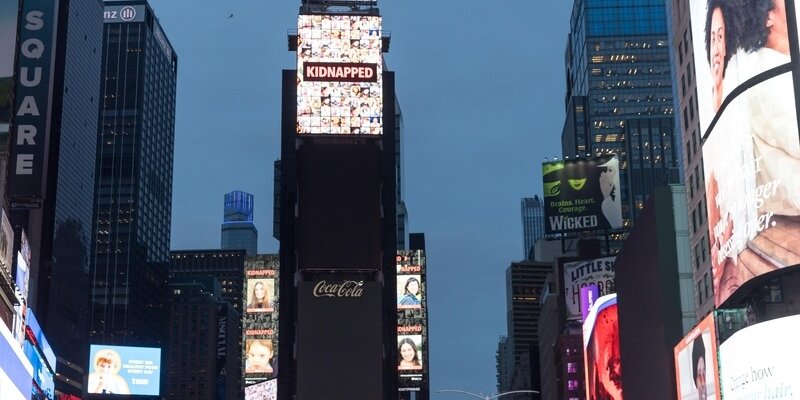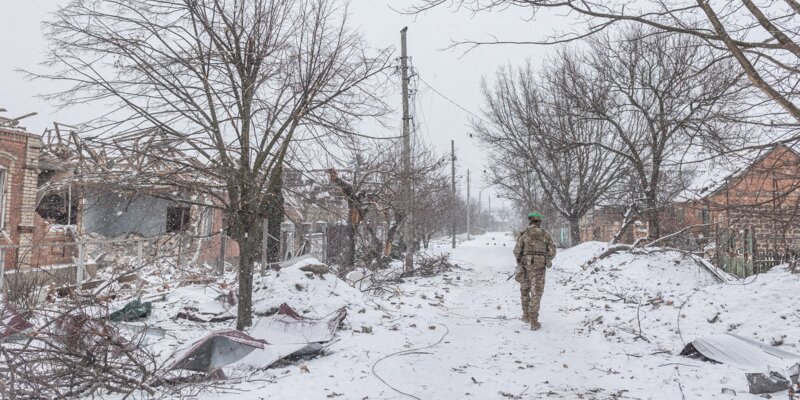How the Settlement Movement Lost Control Over the Hilltop Youth: ‘They Respect No Authority – Not Rabbinical and Not Educational’
As long as Palestinians were the only victims when the Hilltop Youth did the settlers’ ‘dirty work,’ it was convenient for the religious-Zionist establishment to turn a blind eye. Now that the violence has also been directed at IDF soldiers, the ‘handful of youths’ has grown in numbers, and the international community has lost all patience – the leaders of the settler movement are struggling to come to terms with the Golem that has risen against its creator. Shomrim brings voices from the West Bank – along with deafening silences
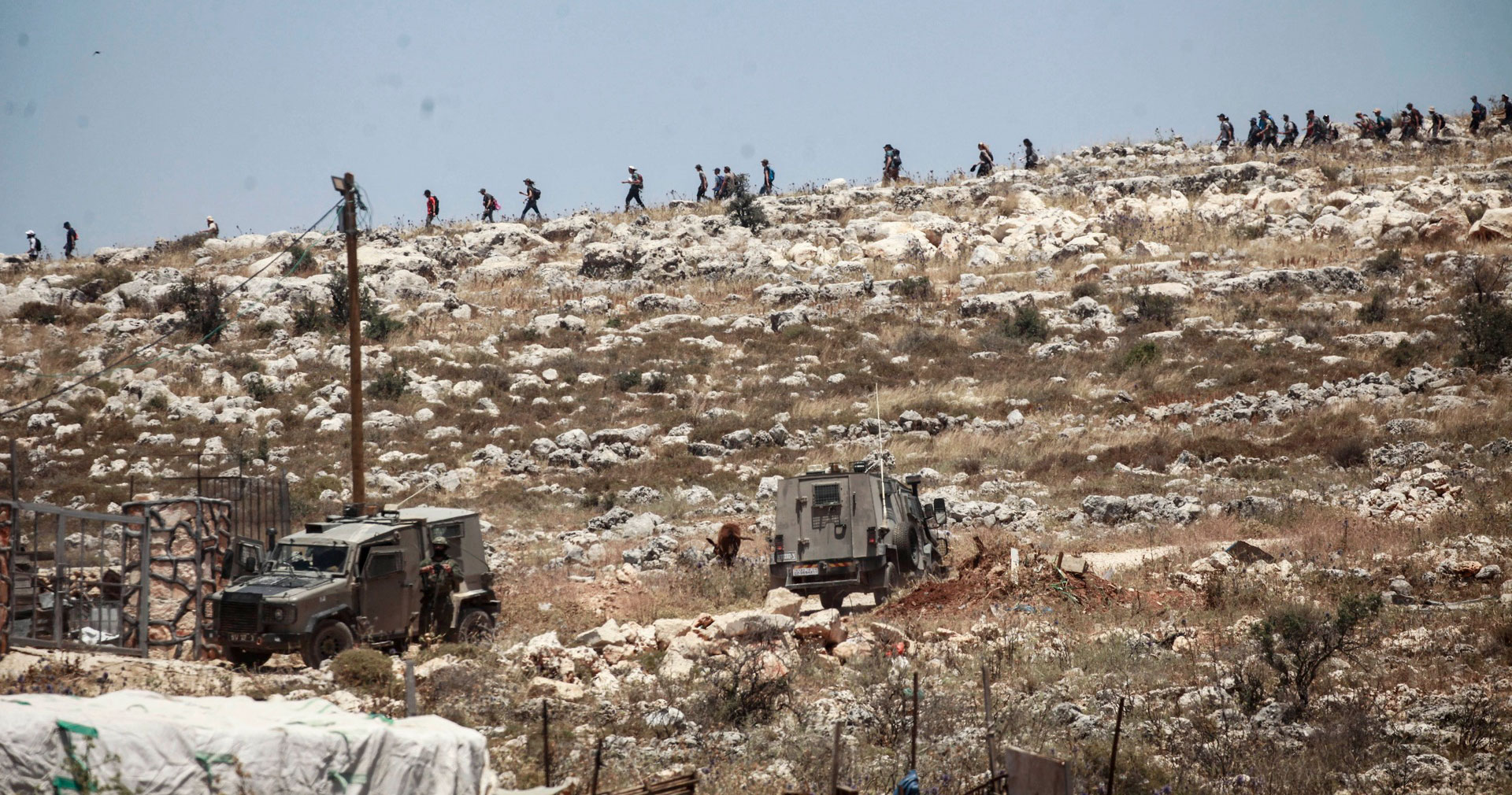

As long as Palestinians were the only victims when the Hilltop Youth did the settlers’ ‘dirty work,’ it was convenient for the religious-Zionist establishment to turn a blind eye. Now that the violence has also been directed at IDF soldiers, the ‘handful of youths’ has grown in numbers, and the international community has lost all patience – the leaders of the settler movement are struggling to come to terms with the Golem that has risen against its creator. Shomrim brings voices from the West Bank – along with deafening silences

As long as Palestinians were the only victims when the Hilltop Youth did the settlers’ ‘dirty work,’ it was convenient for the religious-Zionist establishment to turn a blind eye. Now that the violence has also been directed at IDF soldiers, the ‘handful of youths’ has grown in numbers, and the international community has lost all patience – the leaders of the settler movement are struggling to come to terms with the Golem that has risen against its creator. Shomrim brings voices from the West Bank – along with deafening silences
The Bruqin village area in the central West Bank, May 2025. Photo: Reuters

Chen Shalita
July 17, 2025
Summary


Listen to a Dynamic Summary of the Article
Created using NotebookLM AI tool
Some two weeks ago, militant Jewish youths from the West Bank settlements and outposts – known rather euphemistically as “Hilltop Youth” – went on a rampage that reached new heights of violence and destruction. They set fire to a valuable security installation which provided security for Israeli settlements in the Binyamin area of the West Bank and they tried to break into the headquarters of the IDF’s Binyamin Regional Brigade – torching several vehicles. The spark that ignited this rampage was a clash with a battalion of army reservists who had been sent to demolish an illegal outpost established by the settlers. According to their commander, the reservists were physically assaulted – the settlers even tried to hit them with their vehicles - bombarded with rocks, and told them “You won’t get out of here alive.” The Hilltop Youth, for their part, say that a 14-year-old settler was hit by live army fire during the confrontation, even though the military investigation into the incident concluded that no live fire was used and the youth had been hit by a rubber bullet at a different incident.
In response, the commander says that, in the aftermath of the incident, posters with his name and image – along with the words ‘Traitor’ and ‘Murderer’ – were distributed in Jewish settlements. “Instead of protecting the communities in the area,” the commander told Shomrim, “90 percent of our time is spent trying to stop the Hilltop Youth from starting fires.”
These incidents led to a deluge of condemnation, even from right-wing ministers like Religious Zionism chair Bezalel Smotrich and Otzma Yehudit leader Itamar Ben-Gvir. However, rather than actually condemn the settlers’ behavior, Smotrich stressed that such incidents harm the settlement movement and reiterated the blanket prohibition on opening fire at Jews. Ben-Gvir, in contrast, did condemn the violence, but his party colleague, MK Limor Son Har-Melech, vehemently refused to do so, telling Channel 14 television that “they are our children and sometimes they do things that are not good.”
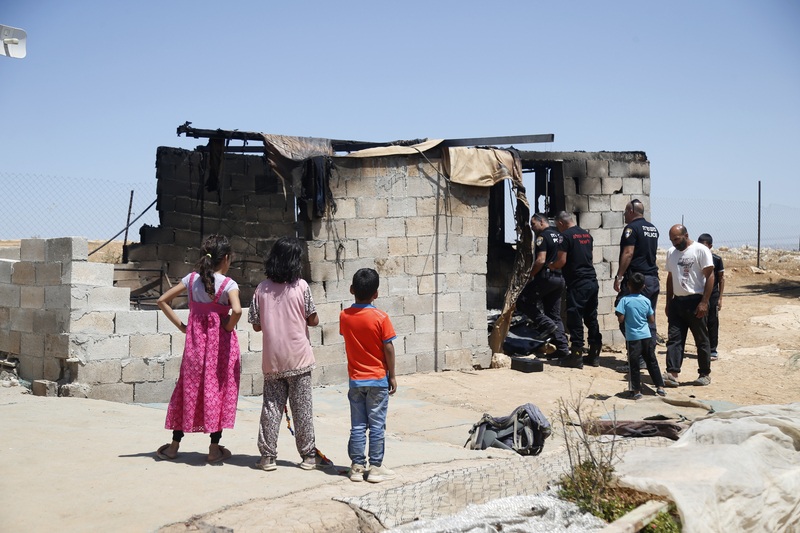
“Even before the last election, I said that they are using the guys from the Hilltop Youth like North Korea uses nuclear weapons as a deterrent,” says Bar Ilan University’s Prof. Menachem Lazar, who has been monitoring the mood among national-religious Israelis. “Here, too, the approach is one of ‘Don’t mess with us, otherwise we’ll unleash the Dobermanns.’ The knitted-kippa establishment (A nickname for the national religious group) still hasn’t found the strength to truly deal with them, so they add ‘Yes, but you have to understand…’ to every condemnation.”
Why is there no absolute denunciation by the national-religious mainstream?
“In my opinion, the national-religious mainstream is suffering from the same paranoia that followed the assassination of Yitzhak Rabin, when the general public saw them as the hothouse in which Yigal Amir (Rabin’s murderer) and his ilk were raised. The classic sense of victimhood still exists. They are afraid that the left will take advantage of any condemnation to attack the national-religious camp and that extremists on the far right will accuse them of kowtowing to the left with their denunciations. Also, there is no religious establishment that all of the streams accept; there is no venerated Torah sage in the national-religious community who everyone listens to. That’s also part of the problem. The National Religious Party represents only a segment of the public.”
Why does the center of the national-religious camp – as represented by the knitted kippa and which makes up the vast majority of this sector – not take firm action against these rampaging youths, who, according to testimony from people in the know, are no longer the ‘handful’ they were once dismissed as? Why do they prefer to frame them as at-risk youths who need welfare care, rather than dealing with the fact that this is an ongoing phenomenon and a nationalist crime that demands firm action? It is hard to get any clear answers from the leaders of the settler movement, Knesset members, rabbis and opinion leaders in from the community. Some of these responses are presented below, but the refusal to address the issue speaks volumes. Here, then, are some of the responses Shomrim received when we asked to discuss the Hilltop Youth with various officials. The secretary general of Bnei Akiva youth movement, Yigal Klein, said that “the issue is important and should be discussed, but I prefer not to give interviews about it.” When asked what kind of educational example he was setting by refusing to speak out against the Hilltop Youth, Klein stopped responding. Rabbi Yaakov Medan, the head of the Har Etzion Hesder yeshiva and an important rabbinical figure, said that he would prefer to write an article on the subject. Likewise, Rabbi Yuval Cherlow, one of the leaders of the Hesder yeshiva Amit Orot Shaul in Tel Aviv and head of Tzohar’s Center for Jewish Ethics, has already given up trying to bring any influence to bear on the rampaging settlers. “Make no mistake about it: these children don’t listen to anyone; they do whatever they want,” he tells Shomrim while also minimizing the rioters to merely ‘children.’ He adds: “They respect no authority – not rabbinical and not educational. They do not listen to the leaders of the Yesha Council and they even view Smotrich as a traitor because he is the minister in the Ministry of Defense who has responsibility for the settlements but has allowed the state to dismantle outposts. No one can do anything about them,” he concludes, “and nothing I say will make an iota of difference.”
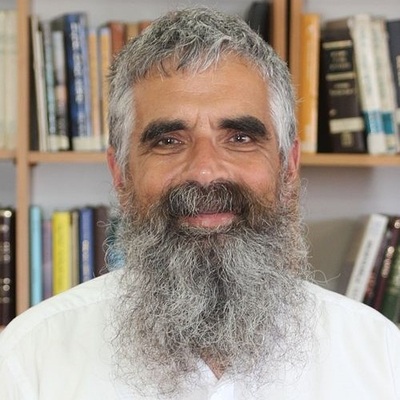
“In the past, any attack on innocent Palestinians or on soldiers would be met with unequivocal condemnation,” says MK Hili Tropper (Blue and White party). “Now, the situation has changed. Whenever there is an attack on Palestinians, there are barely any condemnations; when soldiers are attacked, they are slightly more vocal. But even then, they employ the apologetics of ‘We condemn, but…’ Add to that the sense among the folk from the national religious camp that the entire establishment of state is against them – ‘The Jewish Division in the Shin Bet is against us’ and ‘Ever since Yehuda Fox was named Judea Regional Brigade commander, the IDF has leant leftwards’ – and you’ll find a defensive posturing, similar to what was prevalent after the Rabin assassination.”
.jpg)
But today they are the state, especially over the past two years. Why this victimhood?
“Because they feel the impact of generalizations in headlines, like ‘Settlers attack Palestinians.’ If the media did not paint all of the settlers with the same brush, maybe it would be easier for them to come out against the violence.”
It sounds like you’re going easy on them.
“I rushed to come out against what was happening there. If the settler leadership does not crack down when they are violent toward Palestinians, we shouldn’t be surprised when they attack soldiers. And I do not believe that the leaders of the settlement movement support this violence. They understand that it is not right and even does them harm, but they are caught in the middle.”
‘The Hilltop Youth frighten the Palestinians. That’s convenient for everyone’
The “middle” that Tropper is referring to is – as alluded to above – the fact that the Hilltop Youth are doing the “dirty work” for the settlement enterprise. According to this approach, they are maintaining territorial contiguity for a Jewish presence in the West Bank during periods of settlement construction freeze and create what is viewed by the local leadership as control over the land and a threatening deterrence that the formal institutions of the settlement movement are unable to provide.
One person who is not afraid to call a spade a spade is Malka Puterkovsky, a public activist who lives in the West Bank settlement of Tekoa and who was one of the founders of Forum Takana (an organization dedicated to the struggle against sexual abuse and harassment, committed by spiritual and educational authority figures, within the Orthodox community). “People in the camp will be angry with me for what I am about to say, but the leaders of the settlement movement benefit twice when these youths are on their hilltops. The first is that they manage to safeguard their dogmatic education, because these youths drop out of school and don’t stick around to corrupt their elitist establishments. The second benefit is that the Hilltop Youth become champions of the Land of Israel, who channel their emotional difficulties into defending the territory.
“I am not saying this to justify their behavior, God forbid, but there is years-long frustration that our lives are cheap, that driving on the road in Judea and Samaria is a nightmare. And these youths, precisely because they are young, more extreme and cannot understand complexities, terrify the Palestinians. It’s convenient for everyone when the Palestinians do not bring their flocks to pasture close to the settlements. But, of course, it doesn’t end there and descends into further violence.”
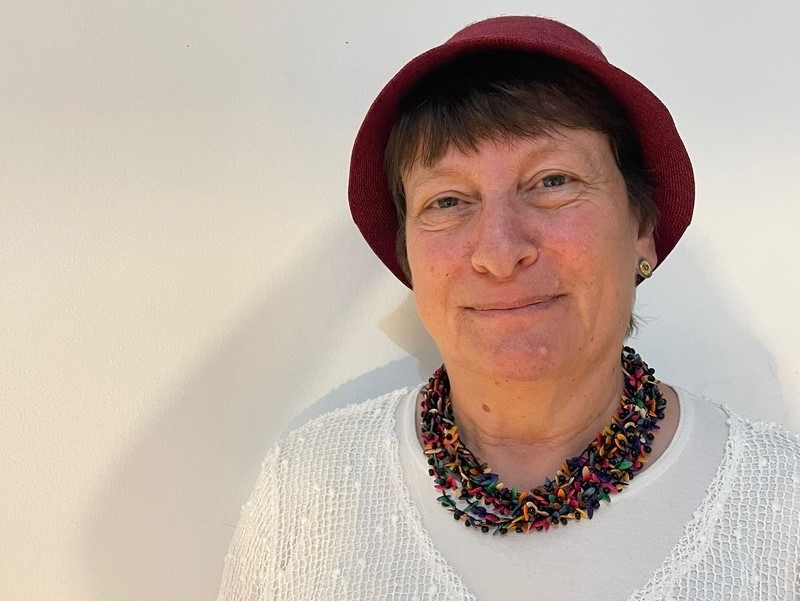
Have you warned people about this?
“Absolutely. I told the leaders that turning a blind eye to the violence against Palestinians, and later against soldiers, would come back to haunt them. So, even from a selfish point of view, even if you don’t care about inculcating values and the only thing that matters to you is keeping hold of the Land of Israel – you have to stop that kind of behavior. It’s totally insane to believe that they will be able to stop them when they want. The Hilltop Youth haven’t listened for years and today, now that they are far from being just a small group, the settler leaders understand that the violence is also being turned inward. Without any mercy.”
In what way is it being turned inward?
“Within the community. Anyone who does not do what is required of them is subjected to violence from these youths. When you adopt a method and act accordingly, you don’t care who stands in the way. You use the same method with everybody. I live in Tekoa, which is considered the most pluralistic and tolerant of settlements. Do you know how many Hilltop Youth come from Tekoa? And many more very moderate figures. True, there are some who did not grow up in Judea and Samaria, and some of the current condemnations are stressing that fact – but so what? They live among us, come visit us; we are the water that irrigates that flowerbed. You cannot simply ignore that.”
Yedidya Lau, the rabbi of Alon, a settlement in the Binyamin region of the West Bank, wrote a letter to members of his community about those of his colleagues who support the Hilltop Youth. “Today, there are rabbis who permit attacks against Arabs for no good reason, with no specific information, not by the military forces, but simply terror,” he wrote. “The vast majority of rabbis, in Binyamin and the Shomron, are utterly opposed to this – but now it’s no longer a small group of criminals, but hundreds of young men who participate. One rabbi from the Shomron told me that he organized an evening of Torah study and singing at the site where Tze’ela Gez (a 30-year-old pregnant woman who was critically wounded in a shooting attack on May 14, 2025, near the settlement of Bruchin. She was on her way to the hospital to deliver her baby when the attack occurred and later died from her injuries), was murdered. Suddenly, a battalion of masked (Jewish) men arrived and started to incite violence; they threw petrol bombs and so on. These unacceptable phenomena are barely criticized, including by rabbis who are very opposed to them.”
Why, then, is there not more condemnation of these incidents? In a conversation with Shomrim, Lau says that “there are some who are closer to supporting them than condemning; there are those who are frightened of confronting them; and there are those who are trying to walk on eggshells, in part so that they can maintain some contact with these youths. There have been cases when people wrote articles against these youths, only for their mothers to write back, saying ‘You can’t see the distress they’re in and you don’t care.’ To answer your question, it is not clear to these youths that they will get a cold shoulder from anyone who disagrees with what they are doing. The shoulder is not cold enough.”
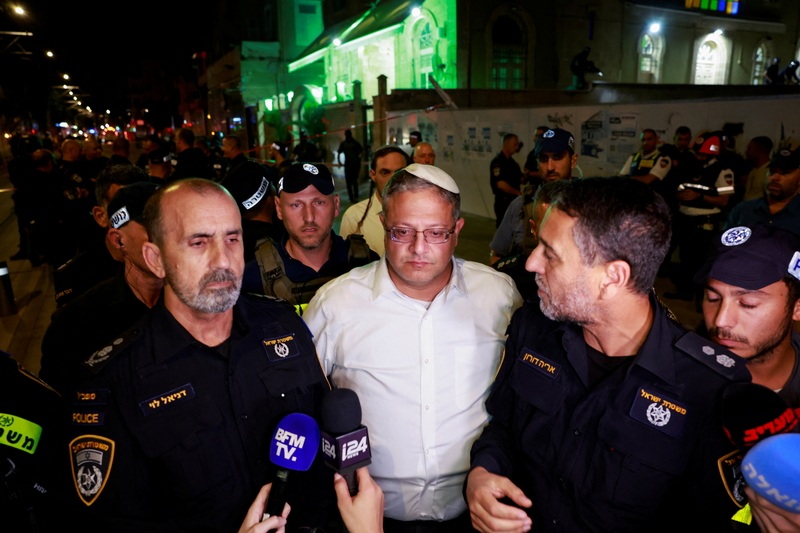
On the ground, not only is the shoulder not cold, but there is also even support from above. For example, immediately after he replaced Yoav Gallant as minister of defense, Israel Katz overturned the administrative arrests of suspected Jewish terrorists, while Smotrich recently described the IDF opening fire on Jews as “crossing a red line,” adding that he believes that the IDF should introduce different rules of engagement for Jews and Arabs. Another example is the suspicion – which is being investigated by the police’s internal affairs division – that Avishai Muallem, a senior officer in the Judea and Samaria Division of the Israel Police, ignored intelligence relating to far-right Jewish extremists and refused to carry out administrative arrests in order not to antagonize Minister of National Security Ben-Gvir. The police vehemently deny the allegation: “The Israel Police in general and the Judea and Samaria Division in particular, are working with determination, responsibility and impartiality to enforce the law and safeguard the security of the public, Palestinian and Israeli alike, while showing zero tolerance toward violence of any kind.” The full response appears below.
“Some of the rabbis were very much in favor of the police in Judea and Samaria no longer dealing with the problem, because they had been told about police harassment of the Hilltop Youth,” says Lau in a conversation with Shomrim, adding that some of these rabbis now understand that they made a mistake. “The police’s failure to crack down on nationalist crime and the annulment of the administrative detentions – which are an extreme tool, but the only one that the Shin Bet has – have led to a situation where there is no law and no one to enforce it. And who is left to deal with these severe incidents? The army, which is becoming the punchbag of these rioters.”
Knitted-kippa reservists have had enough
Stones, punctures and being called ‘Nazi’
Members of the national-religious camp make a significant part in reserve duty, which leads to conflict between reservists with knitted kippot and the Hilltop Youth. This is fully evident in lively discussions conducted on social media sites and in WhatsApp groups associated with the camp. One example is Yinnon Weil, who served in a reserve unit that came under attack and wrote a post on Facebook – under the headline “Our blood is spillable” – in which he complained about the ingratitude of those violent youths and the right-wingers who automatically spring to their defense.
Another social media post, which got a lot of emotional responses and expressions of solidarity was written by Elad Malka, the former deputy director general of the Ministry of Communications. “You reach the area,” he wrote about his reserve duty. “You get to know the farms in the most remote places, simply because you’re responsible for protecting their lives. The first reaction is usually what the hell are they doing here, and how exactly am I supposed to protect them? The second reaction comes after you have taken in the situation on the ground and then you understand that if not them [the settlers], then the Palestinians would take any piece of half-empty land here. During these visits, you get suspicious looks. It’s not like the old-time farms where you know they’re crazy but they are our friends; in the new farms, the Hilltop Youth looks at us differently. And then the operational activity begins. After two or three days, you realize that the thing which occupies most of your time is ‘friction’ between Jews and Arabs. When you arrive, it’s usually the case that you can’t tell who started and, if there’s someone wearing a mask and standing right in front of you, you don’t know if it’s a Jew or an Arab. You disperse the people at the incident, you get called ‘Nazi’ by the Hilltop Youth; on more than one occasion, you’ll have stones thrown at you by mistake, they’ll puncture the tires of the vehicles, making them inoperable. You’re supposed to use force against them to prevent it, but then you ask yourself, ‘Is this what I joined up for? Is this why I came here?’ There’s no way to explain to yourself why you left your regular life to deal with this…Make no mistake about it: a violent society like that will not direct its violence against Arabs alone. It has already spread to violence against the army and it will reach other places too. They are doing huge damage on the international level, which is leading to sanctions against normative right wingers. They are also eroding the strength of the army.”
Another reservist who served in the same unit that was attacked near Ramallah is Elkana Federman, the son of a former leader of the Kach Party Noam Federman, and himself a member of the Hilltop Youth. In an interview with Channel 14 television, he described the company commander as “brilliant,” adding that he handled the incident correctly. “The Hilltop Youth are the salt of the earth and that group does not represent them. That was a group of thugs on steroids who were looking for a little violence. And the campaigns that the panicked television channels are running about it, offend me.”
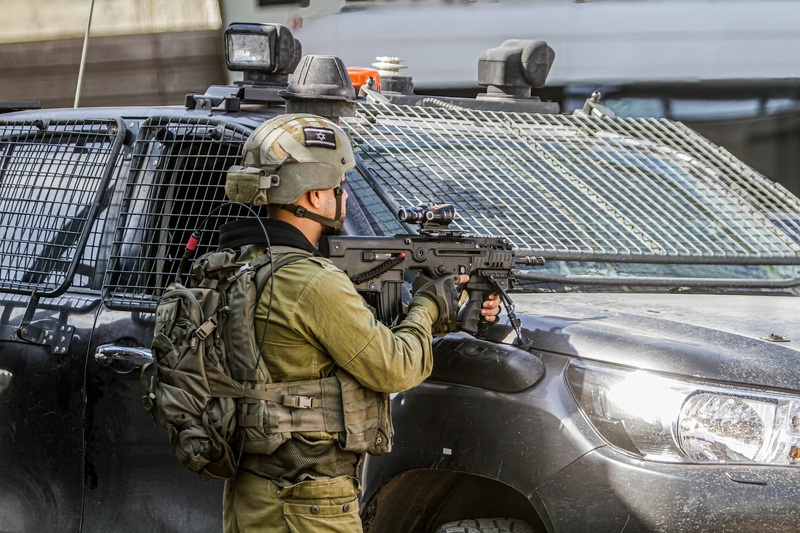
Council leaders’ disavowal
‘Do you ask the mayor of Tel Aviv to cut off water?’
It’s no coincidence that Federman’s comments were backed up by the host of ‘The Patriots’ show, Yinon Magal, and the other panelists. They are part of the disingenuous narrative that is so prevalent. “There are Hilltop Youth who get up at five o’clock in the morning to take the herd out to pasture and to settle the Land of Israel; they don’t have time for such violence,” says the assistant to one of the leaders at the Yesha Council. “There are also criminal ‘price tag’ (the name originally given to the attacks and acts of vandalism committed primarily in the West Bank by extremist Israeli settler youths) whose identity and place of residence are unknown. They could come from Jerusalem, Beit She’an or Safed.”
If you have no idea who they are, how do you know that they are not from your community?
“Even if they were, it’s insane that people make no differentiation between the two groups. We see this as part of the violent campaign against us, especially after October 7, on the issue of settler violence.”
We’re talking about incidents that have been captured on video. And even if their identity cards say that they live somewhere else, they operate here. Do you not have a responsibility to curb this phenomenon?
“What you’re suggesting is a double standard. You’re asking us to act like a state of law and order, while the head of the council acts like some cowboy. Even if he knows who they are, he cannot kick them out or tell them where to live.”
He can stop providing them with resources.
“Do you also ask Tel Aviv mayor Ron Huldai to cut off the water supply to a pedophile who’s walking around the city? Why are you asking the council leaders rather than the police? It’s got nothing to do with us. We went further than the law demands and we started a special project to deal with them, because we want it to be quiet here.”
A similar sentiment was expressed by Yaron Rosenthal, the head of the Gush Etzion Regional Council, where two of the more controversial farms are located. In a conversation with Shomrim, he said that “I’ve got nothing to say. I only deal with issues that are related to Gush Etzion and that phenomenon does not exist here now.”
You are part of the leadership of Judea and Samaria. Do you really not have a position on the most burning issue on the agenda?
“I was elected to deal with problems in Gush Etzion, not to be the figure who leads the agenda of the national religious camp.”
Yisrael Ganz, head of the Yesha Council and chairman of the Binyamin Regional Council — where several of the recent incidents occurred — could not rely on the same excuse. Instead, his spokesperson, Yehuda Amrani, stated that Ganz was busy and would only respond to written questions. Ganz chose to ignore Shomrim’s questions regarding violence by the Hilltop Youth against Palestinians and the crucial role played by the Shin Bet’s Jewish Division in addressing this issue. Instead, he emphasized that the violence was carried out by “a small group of individuals, most of whom are not residents of the area (…) a small group that is not supported — morally or practically — by any part of the council or settlement leadership. In fact, the opposite is true. Long before these latest incidents, I called for these criminals to be arrested and brought to justice, and for every necessary resource to be allocated toward that goal.”
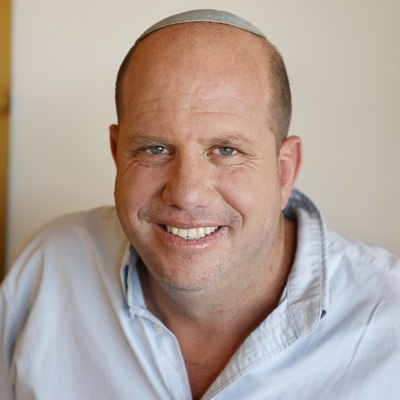
At the end of his written response, which appears in full below, Ganz stressed that “live fire should not be directed at these criminals.” This can be seen as implicit criticism of the incident in which the Jewish youth was hit by a rubber bullet.
Malka Puterkovsky is also angry that leaders of the West Bank councils refuse to give interviews on the subject and at the public atmosphere that permits the phenomenon. “If Rosenthal were worried that his silence could cost him his job at the next election, he would give interviews. The same problem exists in Gush Etzion and it would be a disaster for us if we only educate ourselves when it directly affects us personally. The silence of the council heads, who make do with written statements which they know cannot get them into trouble, is supported by their public, which is not really demanding a thorough solution to the problem. And because they want to curry favor with their audience, they show no public courage.”
The same phenomenon is evident among the rabbis.
“A few years ago, a rabbi published a halachic ruling allowing a certain family to turn on the lights on Shabbat. It was justified, but people still kicked up a fuss over it. And now rabbis see these trends, where the Hilltop Youth travel on the eve of Shabbat – and suddenly they don’t have anything to say about the desecration of the holy Shabbat.”
A sense of rejection and a leadership crisis
‘I feel betrayed; the youths even more so’
According to Rabbi Aviya Hacohen from Alon Shvut, there is a link between the disengagement from Gaza in 2005 and creeping religiosity and the judicial overall – all of which can help explain the ambivalence of the mainstream national-religious camp toward Hilltop Youth violence. Hacohen is the coordinator for dozens of activists who, he says, “are in direct contact with the relevant army commanders in the region in order to deal with an ever-spreading phenomenon which can no longer be dismissed as nothing.”
According to Hacohen, even though many of them were not born at the time, the Hilltop Youth are deeply affected by the crisis of faith between the knitted-kippa public and the government following the disengagement from the Gaza Strip and parts of the West Bank 20 years ago. “It’s still in the air,” he explains. “And to that you have to add a lack of faith in the justice system. After all, they cannot accept the ruling by Meni Mazuz [attorney general at the time of the disengagement] that blocking a road is worthy of 20 years behind bars for anti-disengagement protesters, but when the Kaplan demonstrations (protests against the judicial reform in 2023 and now demonstrating for a hostage deal) started, he did a complete U-turn.
“I feel incredibly betrayed - and the youths even more so,” Hacohen says angrily. “What the hell is the ban on praying in Tel Aviv on Yom Kippur? How did people not scream out about that injustice? They can have a Pride Parade in Jerusalem but we can’t pray in Tel Aviv?”
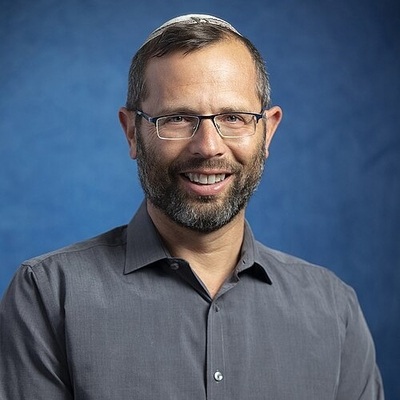
The protest was against segregated prayer in the center of Tel Aviv.
“And all that talk about creeping religiosity in the army – as if that’s a bad thing. After all, we’re not really turning people religious.”
Does that justify the violence that the Hilltop Youth employ?
“God forbid. I go from place to place and I fight more than all of you against the violence. I’m just telling you what fuels the sense of injustice and humiliation that creates erosion in the general public. How destructive the sense of rejection is. After all, 99 percent of the settlers in Judea and Samaria oppose such acts and I agree with you that they do not express their opposition clearly enough.”
Nor do your leaders.
“The last leader of the national-religious camp was Rabbi Druckman, who died three years ago. I agree that we are missing a clear moral voice, but there are also people who are working on the issue 24/7 and prefer to do so quietly. That exists, too.”
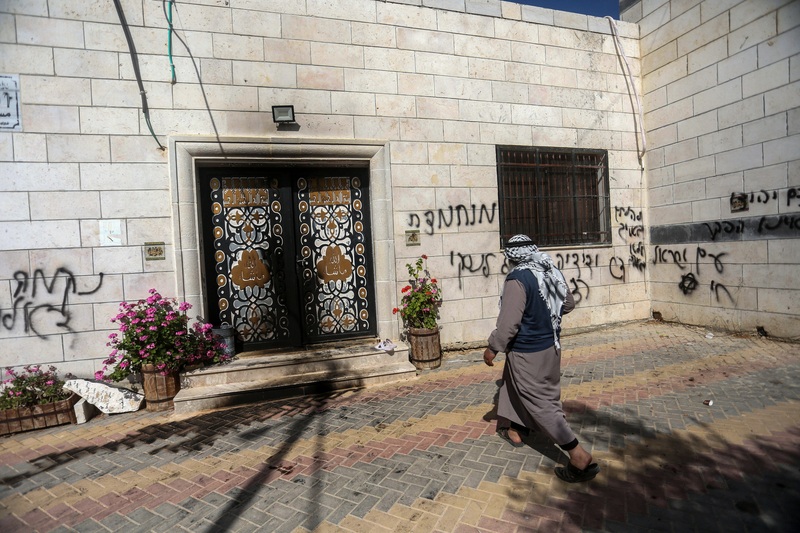
You visit these hilltops and talk to these youths. What do you see there?
“A very strong sense – which only got stronger after October 7 – that our Arab neighbors want to murder us all and that we have to fight. They are certain that there will be another October 7 and they are frustrated that they are the only Jews who can see it. These feelings, along with the fact that they are youths who have dropped out of every framework, lead to complete anarchy, the root of which, in my opinion, is in the teaching of Rabbi Yitzchak Ginsburgh. They also almost hurt me.
“A few years ago, I was driving down a side road in the Binyamin region, when about 60 Hilltop Youth blocked the road. They opened the doors of my vehicle and told me I was lucky I’m a Jew, otherwise, ‘We would have finished you off.’ I got out of the car and we started to talk. They talked about the book ‘Torat Hamelekh,a controversial Jewish halachic book by Rabbis Yitzhak Shapira and Yosef Elitzur that "discusses the circumstances in which Jews would be allowed by Jewish law to kill Gentiles, based on a selective reading of Jewish texts". I have no doubt that they never read it, but it gave them a tailwind.”
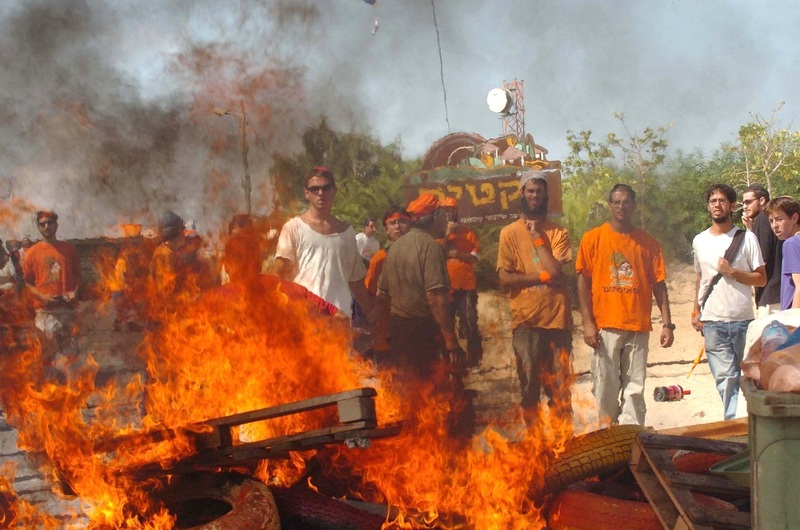
And what about the council leaders who provide resources for their farms?
“In Gush Etzion, most of the farms are under control, apart from the two from which violent youths came. We made a lot of noise and one of the farms understood that if they did not follow the rules of behavior, we would kick them out and cut off their electricity. That same day, everything changed there. There’s another farm that we are constantly evacuating, but someone funds their return every time. I called Zambish [Ze’ev Hever, a senior Yesha Council official and secretary general of the Israeli settlement movement Amana] who told me, "I don’t give them a penny and they don’t listen to me.” Asked to comment by Shomrim, Hever said that he does not give interviews, even on such important issues.
“Rosenthal said the same thing. And when I talk to Rabbi Yosef Zvi Rimon, the chief rabbi of Gush Etzion, he says that any time he goes there they despise him. I understand everyone, but I still think they have to do more.”
‘There’s only one address for dealing with terror – the government’
Why does the popular rabbi refuse to talk about the Hilltop Youth? ‘It’s not the world I live in’
Outside of the West Bank, too, it seems that opinion leaders are unwilling to wade into this murky pool. One example of this is Ilay Ofran, a psychologist and rabbi of Kvutzat Yavneh, a cooperative religious kibbutz. He is from the liberal branch of the national-religious camp and has often spoken out on burning issues and dilemmas. On Facebook, he has an impressive 31,000 followers. Shomrim asked Ofran why he has not spoken out about the Hilltop Youth riots and he replied that, “the main reason that I do not write about and condemn the Hilltop Youth’s horrific riots is that it has nothing to do with me. My only interface with the whole issue is that I read about it in the news. It’s not the world I live in. These are not my friends, my students or my neighbors. I can give you a response of disapproval that would be utterly correct and equally banal, but what value would that add?”
If you and people like you, who shape the opinion of the knitted-kippa mainstream, were to condemn the phenomenon, maybe community leaders would realize that they have to act.
“Condemnation is an act of removing someone from your midst. Who am I supposed to remove? I don’t know anyone in those circles. If I did, I would gladly condemn them.”
Have you not written about issues that don’t impact you personally?
“The only thing I could contribute to the discussion would be to draw a parallel between the demand that the settler leadership solve the problem of the Hilltop Youth and the demand that the leadership of the Arab public solve the problem of organized crime. You can’t expect a normative community to solve its internal delinquency problems. The state has to deal with criminality. That’s what the police are for.”
The day after his conversation with Shomrim, Ofran did indeed write a Facebook post making that very comparison. He also drew a subtle comparison between the Hilltop Youth and the Sikrikim (a community of Haredi Jews) who listen to no one and are the very definition of fundamentalism.
“The aggressive demand that residents, rabbis and leaders of the communities in Judea and Samaria condemn and oppose the horrific incidents of violence against Palestinians and against soldiers is tainted by a profound misunderstanding of the thuggish, fanatical and criminal experience,” he wrote, in implied criticism of the questions Shomrim posed to him the day before. It is hard to expect someone to come out vocally against a violent and armed criminal who has even used violence against the security forces. Making the community responsible for dealing with its own criminals is ugly manipulation, designed to turn every member of the community into direct or indirect accomplices (‘You didn’t stop them’), to make the problem unsolvable (‘That’s just their culture’) and, most of all, to allow the people actually responsible not to do their jobs. There’s only one address for dealing with terror, crime and violence – the government. In a well-functioning country, the government is the only body with the tools and the authority.”
‘The small group in question is not backed by any part of the leadership. The opposite is true’
Yesha Council Chairman Yisrael Ganz submitted the following response: “The residents of Judea and Samaria, including the Hilltop Youth, are a pioneering, Zionist public devoted to the people and the state. A handful of individuals, many of whom are not residents of the area or Judea and Samaria, are involved in unacceptable acts of violence. To tar the entire settler community and the Hilltop Youth with such a brush is ignorance bordering on injustice towards a whole, devoted public, whose dedication to the state and the IDF is regularly seen in tragic announcements from the IDF Spokesperson’s Unit. The small group in question receives no support – neither moral nor practical – from any member of the leadership of the local councils or settlements; quite the opposite is true.
“In my conversations with senior police officers, I have consistently called, long before the incidents of last week, for these criminals to be apprehended and brought to justice, and for all necessary resources to be allocated for this purpose. I reiterate this at every opportunity. The law enforcement system must treat these criminals as they would any other criminals in any other part of the country. As a democratic state, Israel has the tools to do this properly: there is a police force, a prosecution, and courts, which must be mobilized to prosecute anyone involved in this matter. Live fire must not be used against criminals; as a democratic state, we uphold moral and legal standards that allow for law enforcement, and this is how it should be done.”
The Israel Police provided the following response: “The claims presented in your inquiry are baseless, mistaken and entirely unfounded. The Israel Police in general, and the Judea and Samaria District Police in particular, operate with determination, responsibility and impartiality to enforce the law and safeguard public security, whether Palestinian or Israeli, while maintaining zero tolerance for violence of any kind.
“In absolute contrast to what is alleged, in 2025 there has been an increase in the number of arrests and the number of indictments filed against defendants for violent offenses in the Judea and Samaria District, as part of an aggressive and clear policy.
“Any attempt to attribute ulterior motives or political considerations to the police’s conduct is improper, dangerous and detached from reality. We will not tolerate false accusations or harm to the good name of the police, whose officers work tirelessly, often risking their lives, to protect human lives and prevent violence and public disturbances.
“The Israel Police will continue to enforce the law with determination and impartiality everywhere and at all times and will act against anyone who harms public order and the security of residents.”




